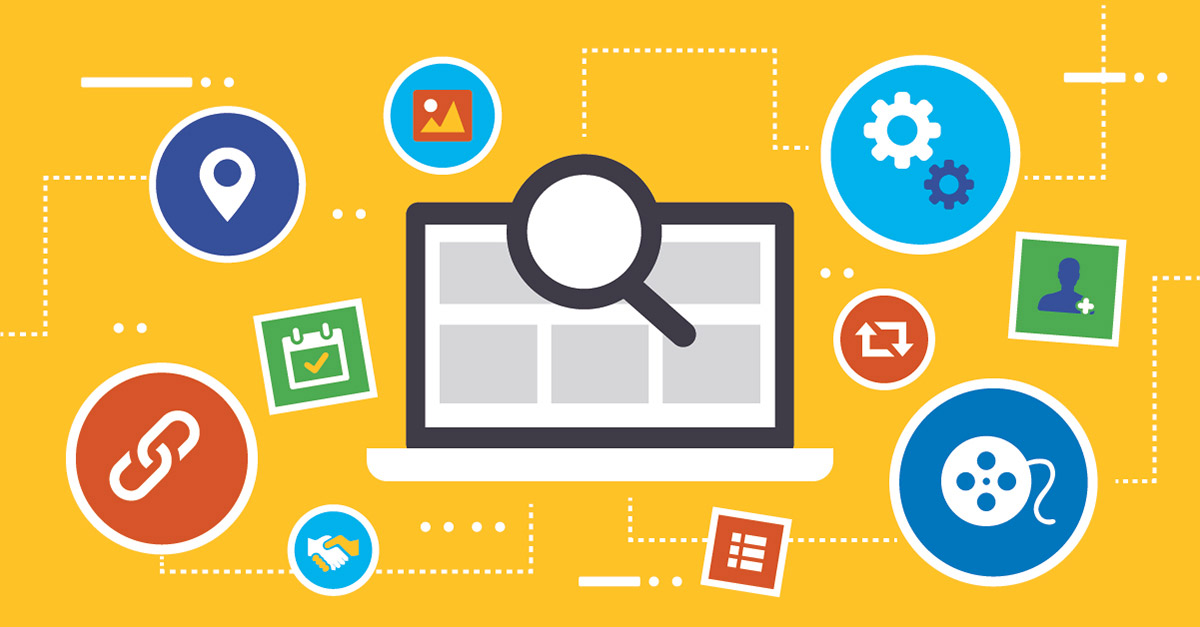Introduction:
Starting a new business is a challenging endeavor that requires careful planning, research, and execution. One of the essential components of this process is conducting a feasibility study. A feasibility study is a comprehensive analysis that assesses the viability of a business idea or concept. It evaluates the potential success of the business venture by examining the market, financial, technical, and operational factors. In this article, we will explore the advantages and disadvantages of a business feasibility study.

Advantages of Business Feasibility Study:
Identifies potential problems: A feasibility study helps to identify potential problems that could arise in the future. It provides an opportunity to address these issues before the business is launched, which can save the company time and money.
Reduces risk: A feasibility study minimizes the risk of business failure by identifying potential problems and finding ways to address them. It also helps to determine the best course of action to take in the event of an unforeseen issue.
Assists in decision-making: A feasibility study provides valuable information that can be used to make informed decisions about the business venture. This information can include market research, financial projections, and analysis of industry trends.
Provides a roadmap: A feasibility study serves as a roadmap for the business venture. It outlines the steps that need to be taken to launch the business, including marketing strategies, financial plans, and operational procedures.
Attracts investors: A feasibility study is a useful tool for attracting potential investors. It provides them with a comprehensive understanding of the business venture, including its potential for success and the risks involved.
Disadvantages of Business Feasibility Study:
Time-consuming: Conducting a feasibility study is a time-consuming process. It requires a significant investment of time and resources, which can be a challenge for small businesses with limited resources.
Costly: A feasibility study can be expensive, especially if it involves hiring outside consultants or conducting extensive market research. This can be a significant investment for a small business and may not be feasible for all entrepreneurs.
Uncertainty: Even after conducting a feasibility study, there is still some uncertainty regarding the success of the business venture. There is no guarantee that the business will succeed, and unforeseen events can still occur.
Limited scope: A feasibility study is limited to the information that is available at the time of the study. It may not account for changes in the market or industry that could occur after the study is completed.
Introduction: A business feasibility study is an assessment of the practicality and potential profitability of a proposed business idea. It includes a comprehensive analysis of various factors such as market demand, financial projections, competition, resources, and regulatory compliance, among others. A well-conducted feasibility study can help entrepreneurs and investors make informed decisions about whether to pursue a business idea or not. In this article, we will explore the advantages and disadvantages of conducting a business feasibility study.
Advantages of Feasibility Study:
Identification of Business Opportunities: One of the primary advantages of conducting a feasibility study is that it helps entrepreneurs identify viable business opportunities. It enables them to analyze market trends, demand, competition, and customer preferences to determine the feasibility of a business idea.
Risk Management: A feasibility study helps entrepreneurs assess potential risks associated with a business idea. It helps them identify potential threats and challenges that could impact the success of the business, and develop strategies to mitigate these risks.
Financial Projections: A well-conducted feasibility study provides entrepreneurs with detailed financial projections for their proposed business idea. This helps them assess the potential profitability of the business, estimate the required capital investment, and determine the expected return on investment.
Resource Allocation: A feasibility study helps entrepreneurs identify the resources needed to start and operate the business. It enables them to determine the capital, personnel, equipment, and other resources required to make the business idea a success.
Regulatory Compliance: A feasibility study helps entrepreneurs assess the regulatory requirements and compliance issues associated with their proposed business idea. This helps them develop strategies to comply with these regulations and avoid potential legal and financial liabilities.
Disadvantages of Feasibility Study:
Time-Consuming: A feasibility study can be time-consuming and require a significant amount of effort to conduct. It involves conducting market research, financial analysis, and other assessments, which can take weeks or even months.
Cost: Conducting a feasibility study can be expensive, especially if it involves hiring consultants or outside experts to conduct the analysis. The cost of the study may outweigh the potential benefits of pursuing the business idea.
Limited Scope: A feasibility study may not provide a comprehensive analysis of all factors that could impact the success of the business. It may focus on certain aspects of the business, such as market demand or financial projections, and overlook other important factors.
Inaccurate Results: The results of a feasibility study may not always be accurate. The study may be based on assumptions or incomplete data, which could result in inaccurate projections or conclusions.
Overreliance on Feasibility Study: Entrepreneurs may become over-reliant on the results of a feasibility study and make decisions based solely on the study’s findings. This can lead to missed opportunities or a failure to adapt to changing market conditions.
What are the advantages of business feasibility study?
A feasibility study helps to determine the viability of a business idea or project by assessing its potential in the market and evaluating its strengths, weaknesses, opportunities, and threats. The main advantages of conducting a feasibility study for a business include:
Helps in decision-making: A feasibility study provides valuable insights into the feasibility of a business idea or project, which can help entrepreneurs or business owners make informed decisions about whether to pursue or abandon a project.
Identifies potential risks: The study can help identify potential risks and challenges that may arise during the course of the project, allowing the business to prepare and plan for such eventualities.
Helps in planning and resource allocation: A feasibility study provides information on the resources required to execute the project, including financial, human, and material resources, as well as the timelines for each stage of the project. This information is essential for effective planning and resource allocation.
Facilitates funding: A well-conducted feasibility study can help attract investors and secure funding for the project, as it demonstrates the viability of the project and the potential returns on investment.
Improves project outcomes: A feasibility study can improve project outcomes by identifying potential problems and weaknesses, which can be addressed before the project commences, resulting in better outcomes and success.
What are the disadvantages of using feasibility studies?
Despite their advantages, feasibility studies can also have some disadvantages, including:
Time-consuming: A feasibility study can be time-consuming and may require extensive research, analysis, and evaluation, which can delay the project’s start.
Expensive: The cost of conducting a feasibility study can be significant, especially if it involves hiring consultants or experts to conduct the study.
May not account for all factors: A feasibility study may not consider all the factors that can impact the success of a project, including external factors such as economic, legal, and political conditions.
May lead to overoptimism: The results of a feasibility study may be over-optimistic, leading to false expectations and unrealistic projections.
What is the use of feasibility study in a business?
A feasibility study is an essential tool for evaluating the viability of a business idea or project. It assesses the potential of the project, identifies potential risks and challenges, and provides valuable information for effective planning and resource allocation. The study helps entrepreneurs and business owners make informed decisions about whether to pursue or abandon a project, and it can also attract investors and secure funding for the project. Overall, a feasibility study is an important step in the process of starting or expanding a business, as it helps to ensure the success and sustainability of the project.
What is a feasibility study in business?
A feasibility study is an assessment of the viability of a proposed business idea. It involves analyzing various factors such as market demand, competition, financial projections, resources required, and potential risks to determine whether the business idea is feasible or not.
Why is a feasibility study important?
A feasibility study is important because it helps entrepreneurs or business owners to assess the viability of their proposed business idea before investing time and money into it. It provides them with valuable insights and information that can help them make informed decisions about the feasibility of the business.
What are the benefits of conducting a feasibility study?
Some benefits of conducting a feasibility study include:
- Identifying potential obstacles and risks that could impact the success of the business.
- Assessing market demand and competition to determine if there is a need for the business.
- Evaluating financial projections and estimating the amount of capital needed to start the business.
- Providing a solid foundation for a business plan and attracting investors.
- Helping entrepreneurs make informed decisions about whether to move forward with their business idea or not.
What are the components of a feasibility study?
A feasibility study typically includes the following components:
- Market analysis: This involves researching the target market, assessing demand, and analyzing competition.
- Technical analysis: This involves evaluating the technical requirements needed to bring the business idea to fruition, including the resources required, manufacturing processes, and production capacity.
- Financial analysis: This involves developing financial projections and estimating the amount of capital needed to start and operate the business.
- Organizational analysis: This involves evaluating the organizational structure and personnel requirements of the business.
- Risk analysis: This involves identifying potential risks and obstacles that could impact the success of the business.
What are the disadvantages of a feasibility study?
Some potential disadvantages of conducting a feasibility study include:
- Cost: Conducting a feasibility study can be costly, especially if it involves hiring outside consultants or conducting extensive market research.
- Time-consuming: A feasibility study can take a significant amount of time to complete, which could delay the start of the business.
- Limited information: A feasibility study may not provide a complete picture of the business’s potential, as it is based on assumptions and estimates.
Conclusion:
A business feasibility study is a valuable tool for entrepreneurs looking to start a new business. It provides a comprehensive analysis of the potential success of the business venture and helps to identify potential problems before the launch of the business. However, it can be a time-consuming and costly process, and there is still some uncertainty regarding the success of the business venture. Entrepreneurs should carefully consider the advantages and disadvantages of conducting a feasibility study before making a decision.



